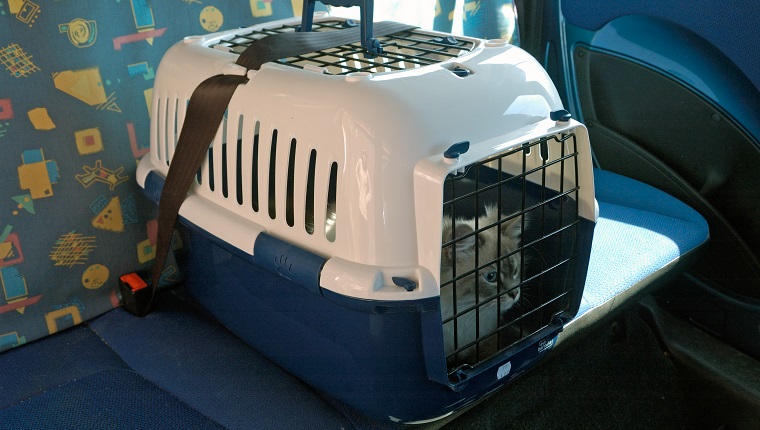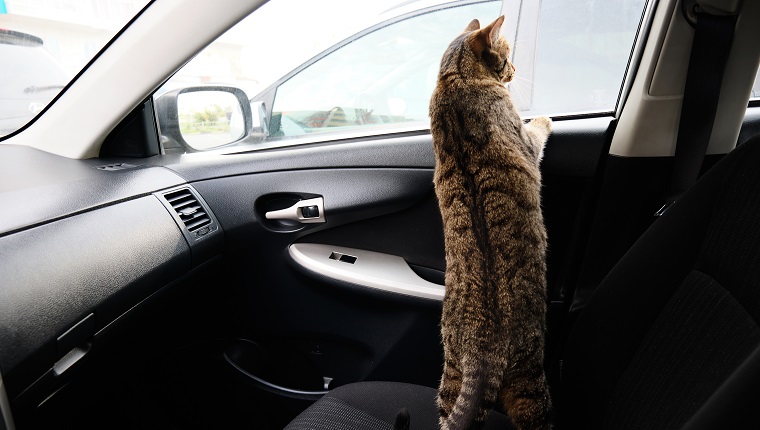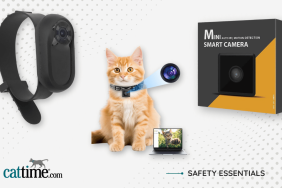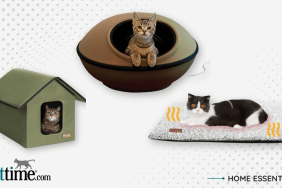Motion sickness in cats is a medical condition that can make a cat feel queasy when traveling in a car. It’s quite common, and the condition can be brought on by stress and anxiety.
Attempting to make your cat as comfortable as possible while traveling by car is often a key factor in overcoming the condition.
If you see signs that your feline might be suffering from sickness when traveling, then you must consult your veterinarian for a proper diagnosis and advice. Here’s what you should know about the symptoms, causes, and treatments of motion sickness in cats.
Symptoms Of Motion Sickness In Cats
Motion sickness in cats can bring on a range of symptoms. Some of the most common symptoms include:
- Vomiting
- Seeming restless
- Meowing a lot
- Drooling
- Diarrhea
- Licking lips excessively
- Urinating while traveling
Causes Of Motion Sickness In Cats

The cause of motion sickness in cats is often accredited to stress and anxiety.
In some cases, a negative early experience with traveling can cause a cat to suffer from frequent bouts later in life. Additionally, indoor cats might feel anxious and uneasy when they are taken outside for travel purposes.
Veterinary Treatments
If you worry that your cat is suffering from motion sickness, then your veterinarian will want to rule out any other underlying conditions that may be causing similar symptoms first.
In some cases, certain medicines can help manage the condition. For example, antihistamines can be used in a sedative fashion to help cats relax and reduce sickness. Additionally, certain over-the-counter medicines can help to lessen any vomiting and nausea.
As always, if your vet prescribes your kitty any medicine, then it is vital that you stick to the precise dosage, frequency and application instructions and complete the full course of medication.
In general, one of the most effective ways to overcome this condition is to make your cat feel more at ease with traveling. Make sure their cat carrier is large and comfortable enough, and start out by taking shorter trips before building up to any longer periods of travel.
In some cases, keeping a car window open can also help to reassure cats who experience sickness while traveling.
Does your cat ever suffer from motion sickness? How do you help them relax while you travel? Tell us all about it in the comments below.









